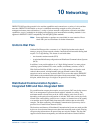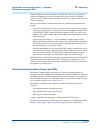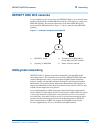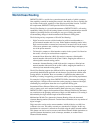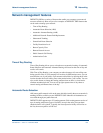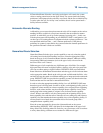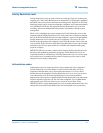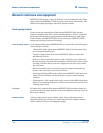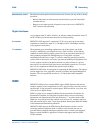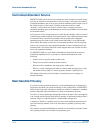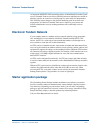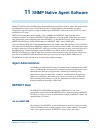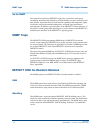
ISDN
10-9
Overview
555-233-001 — Issue 2 — November 2000
10 Networking
Miscellaneous trunks Miscellaneous trunks perform functions that do not fit neatly into any of those already
described:
• Release-link trunks are used between switch locations to provide Centralized
Attendant Service.
• Remote-access trunks provide off-premises users with access to DEFINITY
ONE’s features and networking.
Digital interfaces
Avaya supports both T1 and E1 facilities. As industry standards around the world, T1
and E1 facilities provide the latest alternative to analog trunking.
E1 interface DEFINITY ONE supports E1 connections. T1/E1 access and conversion allows
simultaneous connection to both T1 (1.544 Mbps) and E1 (2.048 Mbps) facilities
(using separate circuit packs).
T1 interfaces When planning your networking requirements, one of the options you should
consider is multiplexing over Digital Services 1 (DS1) facilities. As the industry
standard for interconnecting digital systems, DS1 is an economical alternative to
analog trunking arrangements. Multiplexing up to 24 digitized voice/data
communications paths onto a single T1 carrier or other high-speed digital facility
(such as fibre or microwave) can reduce your network trunking and equipment costs.
Used to connect switches to the public network or to other switches in a private
network, DS1 also delivers high-speed, end-to-end digital connectivity. Voice and
data calls are completed at transmission speeds of up to 64 Kbps.
DEFINITY ONE offers several options in supporting the DS1 interface. The options
include support for voice-grade DS1, alternate voice/data, and Digital Multiplexed
Interface. The voice-grade DS1 interface is a T1 D4 channel-bank-compatible
interface.
ISDN
DEFINITY ONE provides complete ISDN support. ISDN eliminates the need for
multiple, separate access arrangements for voice, data, facsimile, and video services
and networks. Using inexpensive twisted copper, ISDN can deliver voice, data, and
video services in digital format.
ISDN is a global access standard established by the Consultative Committee for
International Telephone and Telegraph designed to help you move and manage
information with unprecedented ease and productivity — anywhere in the world.
ISDN uses a layered protocol that conforms to layers one, two, and three (physical,
link, and network layers) of the 7-layer Open Systems Interconnect Reference Model
of the International Standards Organization.
DEFINITY ONE supports the ISDN Primary Rate Interface, which is used for
connecting premises equipment such as switches to the network and acts as a
powerful interface between intelligent equipment such as switches and computers.
However, trunk-side BRI is supported in countries that support the Euro-ISDN
(ETSI) standards.



